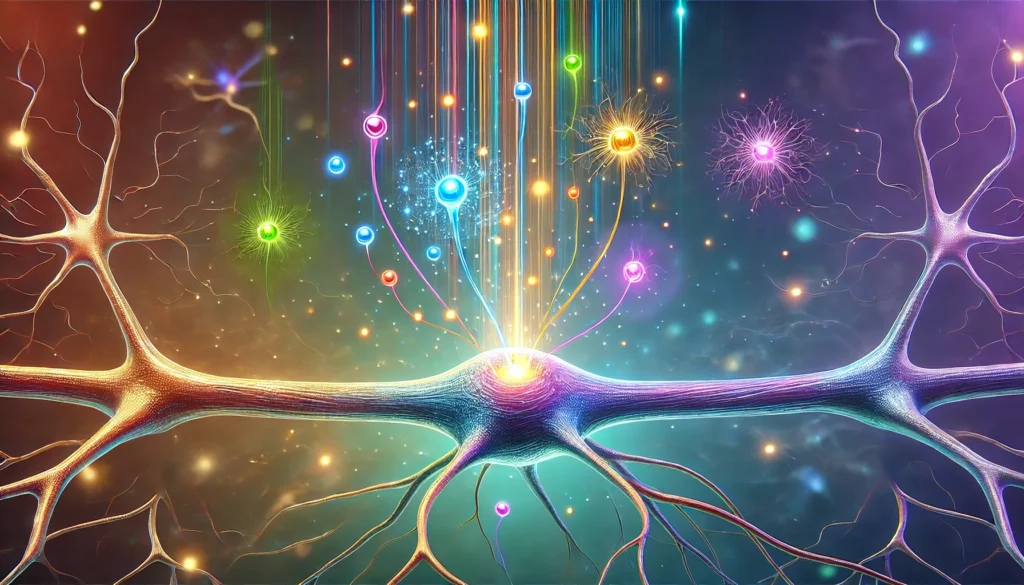Several physiological functions, including growth and development, immune function, wound healing, and cognitive function, depend on the trace mineral zinc. Zinc is a necessary nutrient that must be obtained through diet or supplements because the body is unable to make it on its own. Zinc has grown in popularity as a nootropic supplement in recent years because of its ability to improve mental clarity, alertness, and concentration. We will examine the nature of zinc, its health advantages, the ideal dosage, adverse effects, possible drug interactions, and the most responsible way to use this nootropic supplement in this piece.
You May Also Like:
American Ivy: Benefits, Dosage, Side Effects, Drug Interactions, And Other Important Information
Zinc: Benefits, Dosage, Side Effects, Drug Interactions, and Other Important Information is an original (NootropicsPlanet) article.
Nature of Zinc
Zinc is a chemical element with the atomic number 30 and the sign Zn. It is a reasonably common metal in the Earth’s crust that is bluish-white and lustrous. Ores like sphalerite, smithsonite, hemimorphite, and willemite all contain zinc. Mining is the main source of zinc, which is also a frequent ingredient in the creation of brass, alloys, and galvanized steel.
The liver, kidneys, and bones are where the majority of the zinc in the human body is located. Along with these organs, it can also be found in the brain, muscles, skin, and eyes. Over 300 enzymes depend on zinc for proper operation which include those involved in DNA synthesis, protein synthesis, and immune function,
Health Benefits of Zinc
Several health advantages of zinc have been linked to it, including:
- Immune system performance: Zinc is essential for the immune system to operate properly. White blood cells called T-cells, which are important in the battle against infections and disease require zinc for its activation.
- Mending of Wounds: Zinc plays a role in the mending of wounds. It aids in tissue repair and cell development promotion.
- Cognitive ability: Zinc is necessary for a healthy brain operation. It aids in the regulation of neurotransmitters, which act as chemical mediators between brain cells.
Skin health: Zinc has been shown to promote healthy skin and help reduce inflammation. Sexual and reproductive health: Zinc is necessary for the growth of the fetus during pregnancy and the synthesis of testosterone in males.
Chemistry of Zinc
As mentioned, zinc is a transition element in the periodic table with an atomic number of 30 and the letter Zn as its symbol. Usually in nature, zinc is found as sphalerite which is a crystal structure with a silver-gray hue. Zinc is the 24th most common element found in the crust of the earth which is considered a relatively abundant element. More than 300 different enzymes in the body need zinc to function properly, making zinc important for human health.
The body uses zinc for many physiological functions, such as DNA production, wound healing, protein synthesis, and immune function. Zinc also plays a role in the control of neurotransmitters like glutamate, serotonin, and dopamine in addition to being necessary for brain activity, z
Physiological Mechanism of Action of Zinc
Maintaining brain function requires a large quantity of zinc. High amounts of zinc are found in the brain which explains why it is necessary for healthy brain growth and operation. Dopamine, serotonin, and glutamate are three neurotransmitters that are crucial for emotion, memory, and learning. These three are regulated by zinc.
Additionally, zinc plays a role in the development and maintenance of cerebral tissue. Synapses, the junctions between nerve cells that permit communication in the brain require zinc to develop and remain functional. Additionally, zinc plays a role in the control of neuronal plasticity, or the brain’s capacity to adjust to and change as a result of new experiences and stimuli. Studies have shown that taking a zinc supplement can improve cognitive performance, especially for those who are zinc deficient. For instance, it is shown in studies that zinc supplementation improves cognitive function in healthy older adults. Another research released in the Journal of Nutrition and Metabolism discovered that zinc supplementation improved cognitive function in children with ADHD. (ADHD).
Although the precise mechanism by which zinc improves cognitive function is not completely understood, zinc deficiency can definitely cause immune dysregulation and raise the chance of infections. More studies are needed to find out the exact mechanism of zinc that is involved in the regulation of neurotransmitters and the structure and function of brain cells.

Optimal Dosage of Zinc
Zinc intake recommendations vary by age, gender, and other variables. Adult males should consume 11 mg per day, while adult women should consume 8 mg per day. Pregnant and breastfeeding women require more zinc, with a daily intake of 11-13 mg suggested.
The optimal dosage of zinc as a nootropic supplement can differ depending on individual needs and goals. A typical dosage limit is 15-30 mg per day. However, users should be aware that taking too much zinc can be harmful and lead to toxicity. Zinc’s tolerable upper intake amount is about 40 mg per day.
Side Effects of Zinc
While zinc is usually safe when taken in appropriate doses, excessive zinc consumption can have negative consequences. The following are some of the most prevalent side effects of zinc supplementation:
- Nausea and vomiting
- Stomach cramps and diarrhea
- Headaches
- Reduced immune function
- Copper deficiency
- Anemia
- Kidney damage
Potential Substance Interactions with Zinc
Zinc can be combined with a variety of other substances, including medications and supplements. To prevent potential interactions, it is critical to consult with a healthcare provider before beginning any new supplements or medications.
- Antibiotics: Zinc can inhibit the uptake of certain antibiotics, such as quinolones and tetracyclines. Zinc supplements should be taken at least two hours before or after taking medicines.
- Iron: Zinc can inhibit iron absorption, especially in instances of iron deficiency anemia. It is suggested that zinc supplements should be taken at least two hours before or after iron supplements.
- Copper: Excessive zinc consumption can result in copper deficiency, which can have negative impacts on the body, such as anemia and bone loss.Calcium: In the body, zinc and calcium can fight for absorption. Taking zinc supplements in conjunction with calcium supplements or high-calcium foods may decrease zinc absorption.Vitamin C: Vitamin C can improve zinc uptake in the body. Zinc absorption can be increased by combining zinc supplements with vitamin C supplements or foods that are rich in vitamin C.
Best Responsible Use of Zinc
It is critical to use zinc as a nootropic supplement responsibly according to the suggested dosage guidelines. Before beginning any new supplements or medications, it is also critical to consult with a healthcare practitioner.
Here are some guidelines for using zinc as a nootropic substance responsibly:
- Select a reputable supplier for a high-quality supplement.
- Follow the label’s suggested dosage guidelines.
- To minimize the risk of stomach upset, it is advised to take zinc supplements with food.
- Do not exceed the suggested dosage, as excessive amounts of zinc can be harmful to the body.
If you experience any negative side effects, discontinue the use of zinc supplements immediately and seek a doctor’s help.
Zinc:
Conclusion
In conclusion, zinc is one of the most common elements found in the earth’s crust. Zinc can improve your cognitive ability due to its involvement in neuronal plasticity. It is also involved in the regulation of neurotransmitters such as dopamine and acetylcholine. In addition, zinc is also good for the skin as it promotes wound healing. Zinc supplements are quite safe to be taken in moderation. However, overconsumption of zinc supplementation will affect the absorption of calcium which is bad for your bones. Some people may also suffer from certain side effects such as headaches, nausea, and others. Hence, it is pivotal to check if zinc supplementation is suitable for you before beginning the supplementation routine.

References:
- Da Silva De Vargas, L., Jantsch, J., Fontoura, J. R., Dorneles, G. P., Peres, A., & Guedes, R. P. (2023). Effects of Zinc Supplementation on Inflammatory and Cognitive Parameters in Middle-Aged Women with Overweight or Obesity. Retrieved from: Nutrients, 15(20), 4396.
- Maret, W., & Sandstead, H. H. (2006). Zinc requirements and the risks and benefits of zinc supplementation. Retrieved from: Journal of Trace Elements in Medicine and Biology, 20(1), 3–18.
- Tupe, R., & Chiplonkar, S. (2009). Zinc supplementation improved cognitive performance and taste acuity in Indian adolescent girls. Retrieved from: Journal of the American College of Nutrition, 28(4), 388–396.
Important Note: The information contained in this article is for general informational purposes only, and should not be construed as health or medical advice, nor is it intended to diagnose, prevent, treat, or cure any disease or health condition. Before embarking on any diet, fitness regimen, or program of nutritional supplementation, it is advisable to consult your healthcare professional in order to determine its safety and probable efficacy in terms of your individual state of health.
Regarding Nutritional Supplements Or Other Non-Prescription Health Products: If any nutritional supplements or other non-prescription health products are mentioned in the foregoing article, any claims or statements made about them have not been evaluated by the U.S. Food and Drug Administration, and such nutritional supplements or other health products are not intended to diagnose, treat, cure, or prevent any disease.


